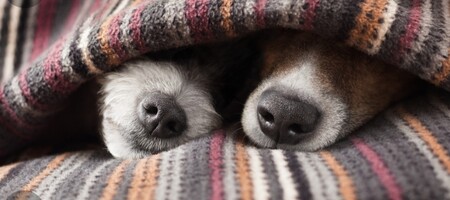
Winter and our pets
Houston typically doesn’t have extremely cold winters but there are times when it’s a lot colder than we all prefer. When temperatures drop, we layer up in warm clothes, turn up the furnace, enjoy hot drinks, and take other steps to stay warm and safe. But what about our pets? Practicing good cold weather safety for pets is essential to keep all our furry, scaled, and feathered family members safe and comfortable in winter.
Some factors that affect an individual pet’s tolerance for cold temperatures are:
- Their coat
- Age
- Body fat
- Activity level
- Overall health
- The very young and old, small pets, short-haired and hairless varieties, those with chronic disease (including heart disease, Cushing’s disease, arthritis and kidney disease), and pets with special needs also are less cold-tolerant and more likely to experience problems.
Keeping Pets Safe in Cold Weather
There are many steps pet owners can take to keep their animal friends healthy, safe, and comfortable in cold weather. Different steps will apply to different types of animals and some animals are adaptable than others but understanding how to help animals stay safe in cold weather is the first step to protecting pets.
- Never shave your pet’s coat in winter. While a shorter cut may be helpful in summer heat, it is important to keep your pet’s natural coat intact in the winter.
- Brush your pet often but minimize baths. Regular brushing can keep your pet’s coat from becoming tangled and matted, which would disrupt its insulating properties. Try not to bathe your pet frequently during cold weather, however, because the dampness as they dry can make them more susceptible to chills, including frostbite and hypothermia.
- Consider cold weather attire. Short-coated pets can easily wear sweaters, coats, and booties to augment their natural fur coat in winter. While cats don’t tend to tolerate wearing cold weather gear too well, many dogs readily adapt to these accessories. Be sure the clothing fits well and does not present a choke or tangle hazard to your pet, and always keep the clothing clean.
- Adjust your pet’s diet as needed. While indoor pets may exercise less and not need extra calories for warmth in winter, outdoor pets can benefit from some extra feed because they will use much more energy to maintain their body heat in winter.
- Provide a warm sleeping place. All pets should have a warm, comfortable sleeping place during cold weather. Ideally, the bed should be off the floor (providing a pet bed is a great option) and adding an extra blanket or deeper bedding can be helpful for better insulation.
- Protect your pets from overheating. It can be tempting to put pet cages, tanks, and carriers close to heaters in the winter, but this could lead to dangerous overheating. Take care that your pet is not suffering from too much heat, and that they are not at risk from fireplaces, candles, space heaters, or other heat sources.
- Provide warm water for drinking. Icy water can quickly chill your pet from the inside out. Using heated pet bowls for outdoor pets during cold weather will keep the water from being too cold or completely frozen and undrinkable.
- Take shorter walks and play indoors instead. It’s important that your pet gets good exercise year-round, but outdoor play and long walks may not be safe in very cold weather. Instead, take shorter walks and plan indoor games to keep your pet exercised and in good shape.
- Stay off icy surfaces. When walking or playing outdoors in winter, keep your pet off icy surfaces that could lead to dangerous slip and fall accidents, and avoid iced-over water altogether to avoid the possibility of falling through broken ice.
- Use reflective collars, leashes, and clothing. Because winter days are shorter and it gets dark quickly, be sure your pet’s collar, harness, and leash have some reflective material to make them more visible. Similarly, have reflective material on your own coat and wear brighter colors that will be easier to see.
- Be aware of special needs. Cold weather can be especially dangerous for pets with special needs, such as youngsters or senior pets, or pets with health conditions that could be exacerbated by severe cold.
- Recognize the signs of cold stress. No matter what type of pet you have, be alert to the signs of cold stress, from shivering and lethargy to symptoms of frostbite and hypothermia.
- Be prepared for emergencies. Stock up on pet supplies, including medication, food, and other needs, in case you are snowed in or there may be an extended power loss during cold weather.
Information by Brookline
